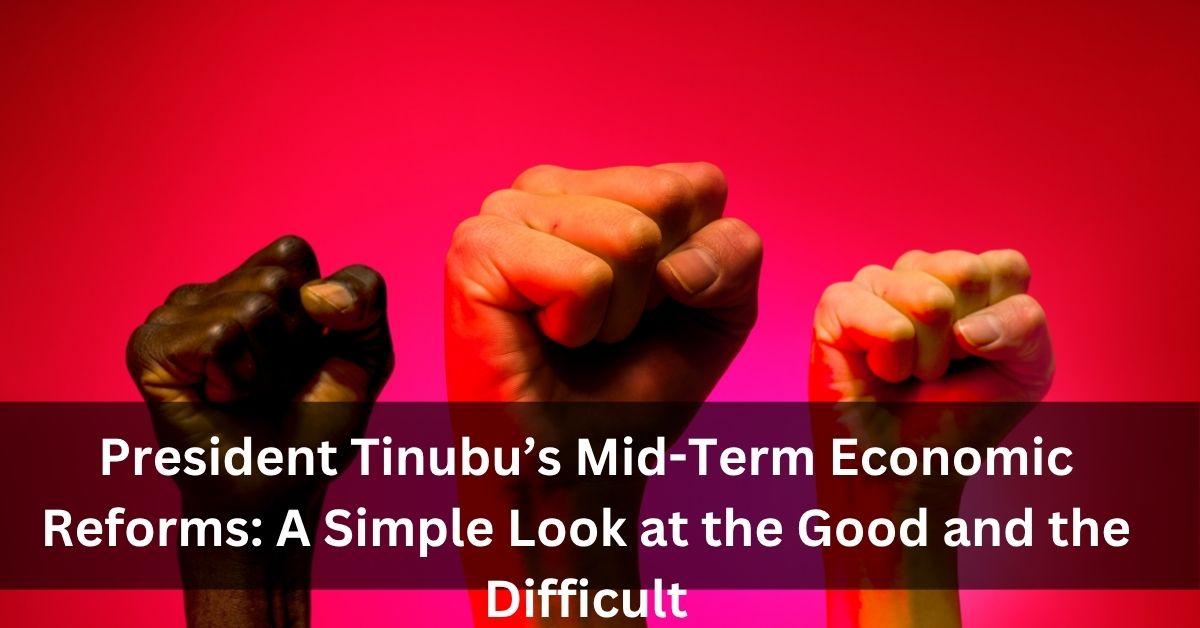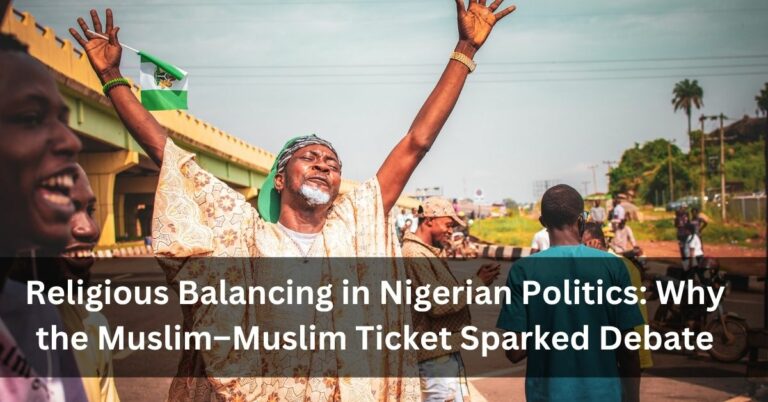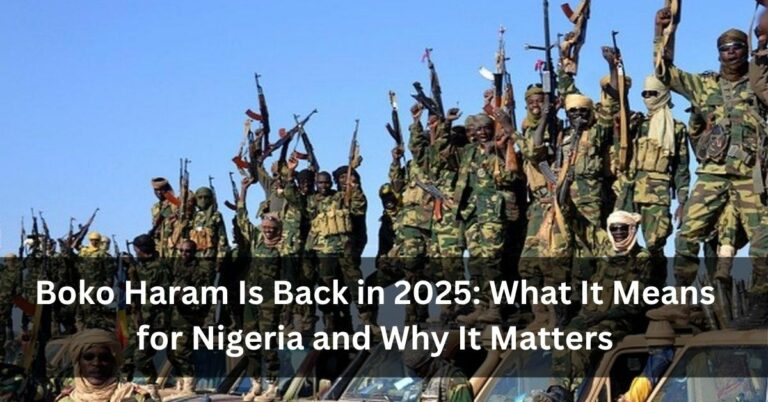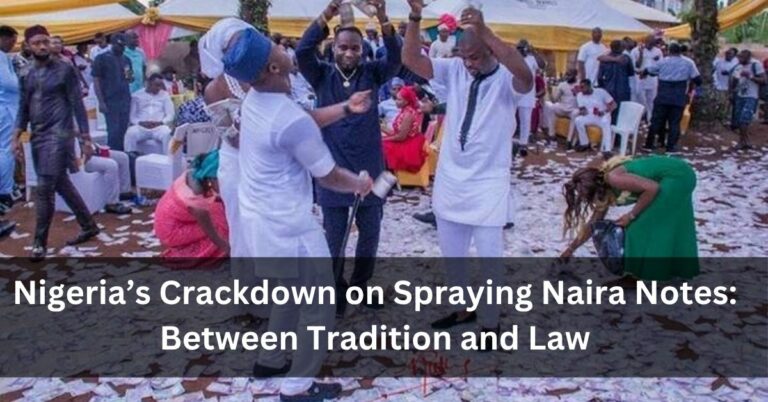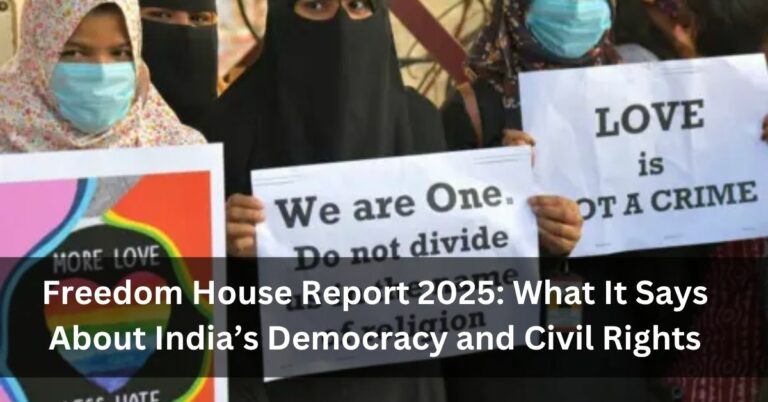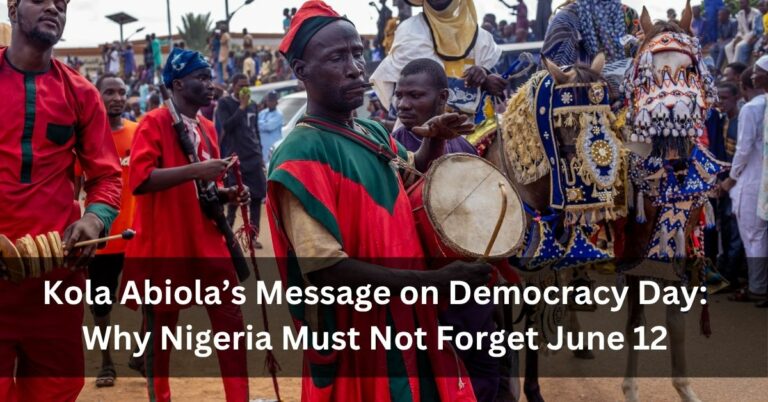President Tinubu’s Mid-Term Economic Reforms: A Simple Look at the Good and the Difficult
President Bola Ahmed Tinubu has now completed two years in office. These two years have brought many changes, especially in Nigeria’s economy. His government has made several bold moves that are aimed at fixing the country’s long-standing economic problems. Some of these steps have brought good results, while others have made life tougher for many people.
This article will help you understand what these reforms are all about, how they are working, and what problems still remain. Whether you are curious about African politics or just want to know how things are going in Nigeria, this is for you.
Cutting Government Spending: Saving for the Future
One of the biggest decisions made by President Tinubu was ending fuel and electricity subsidies. Before this, the government spent a lot of money helping people pay less for fuel and power. While this helped some families, it also cost the government billions of dollars every year.
Removing these subsidies means the government now has more money to use on things like roads, hospitals, and education. According to reports, Nigeria’s budget deficit has gone down because of this change. But this move has also made fuel and electricity more expensive for everyday people.
This policy has received mixed reactions. Some think it’s a good way to fix the economy. Others say it’s making life harder for poor families. You can read more about this and related updates on Nairaland.
Making the Naira More Realistic
Another big step was changing how the Nigerian currency, the naira, is valued. Before, the government fixed the price of the naira, but in reality, people had to pay much more to get dollars on the black market. This caused confusion and made it hard for businesses.
Now, the naira’s value is decided more by the market. This has helped bring the official and black market rates closer. It has also made things more honest for businesses and investors. However, it has also made imported goods more costly, which affects prices in the market.
For more updates on economic stories like this, keep checking Nairaland.
Oil Sector Gets a Push
Nigeria is rich in oil, but for years the sector has struggled. Under President Tinubu, local oil companies are getting more chances to work and grow. Some old oil wells have been reopened, and new oil terminals have started working again.
This is good news for the economy because oil brings in a lot of money. The government is also offering tax breaks to oil companies that try to cut costs and run better. This may help in the long run, but results will take time to show.
Building Roads and Improving Healthcare
The Tinubu administration has also focused on big infrastructure projects. One example is the Lagos-Calabar Coastal Highway, which is over 700 kilometers long. This road will connect several parts of the country and help trade and travel.
In the health sector, efforts are being made to improve small local clinics and expand health insurance. These steps are meant to make healthcare easier to access for regular people. These plans are still being carried out, so it’s too early to say how much they will help.
Stay informed on updates like this by visiting Nairaland.
Price Rise and Public Anger
One of the biggest problems people are facing now is rising prices. After subsidies were removed and the naira was devalued, the cost of basic things like food, transport, and fuel went up. Inflation has crossed 23%, which means your money buys less than it did before.
This has led to protests and strikes in different parts of the country. Many people feel the government’s policies are hurting more than helping. Even though the reforms aim to fix the economy, the effects are being felt most by poor and middle-class families.
Safety Issues Still Remain
Despite government efforts, the country is still facing security challenges. There are still reports of kidnappings, bandit attacks, and unrest in some regions. These problems not only affect daily life but also stop farmers from growing food and traders from doing business safely.
This means that fixing the economy alone is not enough. The government also needs to make sure people are safe in their homes and on the roads.
What Critics Are Saying?
Opposition leaders and some Nigerians feel the reforms have not been fair. They say the government should have planned better and done more to help people who are struggling because of these changes. Some also believe the rich are less affected, while the poor suffer more.
President Tinubu and his team say the reforms are necessary to fix long-term problems. They argue that tough decisions today will lead to better days ahead. Still, many people are waiting to see real improvements in their daily lives.
What Lies Ahead
Looking forward, much depends on how the government handles the next steps. There are signs that some policies are working, like better control of public funds and improved business confidence. But until the price of food and fuel becomes stable, and until people feel safer and better off, it’s hard to say if the reforms are truly working.
It’s a long road ahead, but with time and better planning, there is hope for improvement. The next few years will show whether the pain of today was worth it for tomorrow’s gain.
For more regular political news and public updates, follow Nairaland where you’ll get simple, clear stories that explain what’s going on without the confusion.
Final Thoughts
President Tinubu’s government has made bold choices. Some are working, some are not. What matters most now is how the remaining years are used. Will the government listen to the people and adjust? Or will it stick to its path no matter what?
Stay updated and informed. Visit Nairaland for more easy-to-understand coverage on politics and government news that matters to everyday people.

